Each edition contains the latest from the Grokkist Press, a roundup of events and highlights from our community, and a care package of snackable outside links selected to nurture your curiosity.
We respect your inbox. Use the link at the bottom of this email to unsubscribe if this is no longer for you – no hard feelings!
Hey friends,
For the 50th edition of this newsletter, I thought I'd reflect on some lessons I've learned from the task of having to put an edition together every two weeks.
I enjoy compiling the newsletter – it feels like a kind of digital gardening. And it provides both an occasion and a container for me to compile and organise my various thoughts and efforts over the past two weeks.
In other words, for me this newsletter is a forcing function.
Knowing that it's coming up again soon puts me into a productive panic about making sure I have enough worthy stuff to put in it.
No matter how much intrinsic motivation I have (and I have a lot), I know that it's this perpetual panic that makes me actually do the worthy work.
It's a game we play with ourselves.
No-one would mind if I put out a slightly less-than edition, or missed a week. In fact, most people would barely notice. The spotlight effect makes us believe people are paying more attention to us than they really are.
I know this, because in the early days of the newsletter I did miss a bunch of weeks, and the quality was more variable. Hardly anyone noticed and those who did notice didn't much mind.
You might think this would be demotivating – no-one cares! – but it's actually liberating. It frees me to focus on a more sincere relationship with my practice.
Whether or not anyone else is paying attention, I notice whether or not I have met my own standards for quality and consistency of achievement. And having a regular occasion and container means I can also notice my behaviour and progress over time and consider whether I am being kind and realistic to myself about those standards.
It's a kind of steady, rhythmic journalling in public.
It's the public bit that keeps me in conversation with the world and makes sure my efforts are focussed in a direction that is meaningful and valuable to others.
And it's the steady rhythm that causes me to reflect on what that meaning and value really is, to gradually comprehend what it is I am actually doing, and to discover its most natural shape and form.
Everyone knows real success is about consistency. And consistency is a long game.
Most of us are actually very consistent about the things we care about most and that can hold our curiosity for the longest time. It's just that many of us haven't found or claimed the kind of public containers that give us good occasion to bring forth our most worthy work and to find worthy words that give voice to what it is really about.
Is there a forcing function that has worked for you?
Grok on!
- Danu
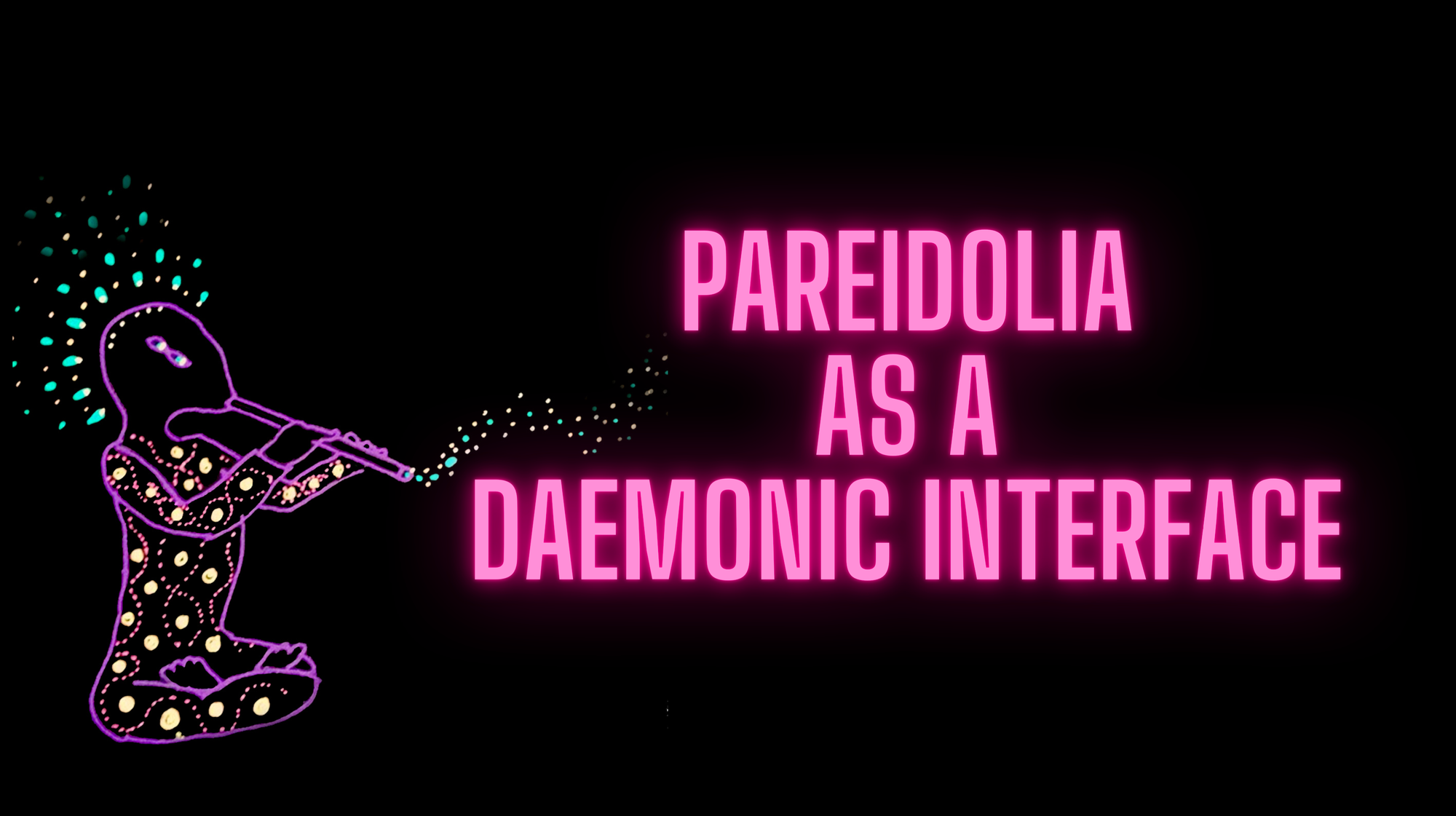
Pareidolia as a Daemonic Interface
by The Ungoogleable Michaelangelo (35 min watch / 10 min read)
In this Grok Talk, discover how pareidolia – seeing shapes in clouds or Jesus on toast – turns the ordinary into portals to the unconscious, where simple shapes reveal the hidden layers of the self. Join The Ungoogleable Michaelangelo for a psychedelic 'Bob Ross' experience in creating expressive art from everyday patterns.
From the Grokkist Network
Events and updates from our community
Learn more about the Grokkist Network ↗Featured events and meetups
🟢 Free and open to all
🟠 Open to all with suggested cover charge. Free for Full Members.
🟣 Exclusive to Full Members only (Grokling, Indie Grokker, Groksmith)
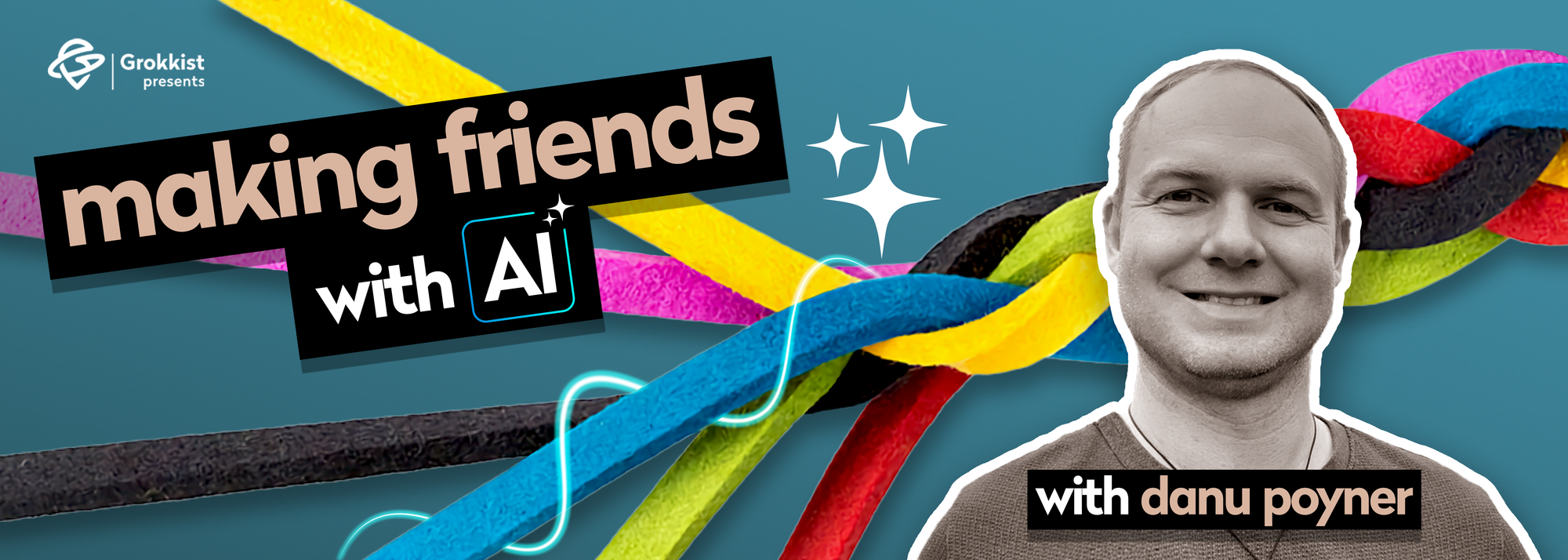
Making Friends with AI
🗓️ Wed 28 Aug | 11am–12.30pm NZT (UTC+12) (view in your timezone)
Hosted by Danu Poyner
🟠 Free for Full Members (USD$15 suggested tuition for guests)
AI is here and it’s changing things, fast. Don’t want to get left behind but not sure what to do? Already dabbled but not getting the results everyone seems to be raving about? Here’s your chance to practice.
In the first section, I’ll demonstrate a cool and simple AI technique that you can follow along with and practice.
In the second section, we’ll crowdsource a real-world task or problem from the group and workshop an AI-based solution together live on-screen.
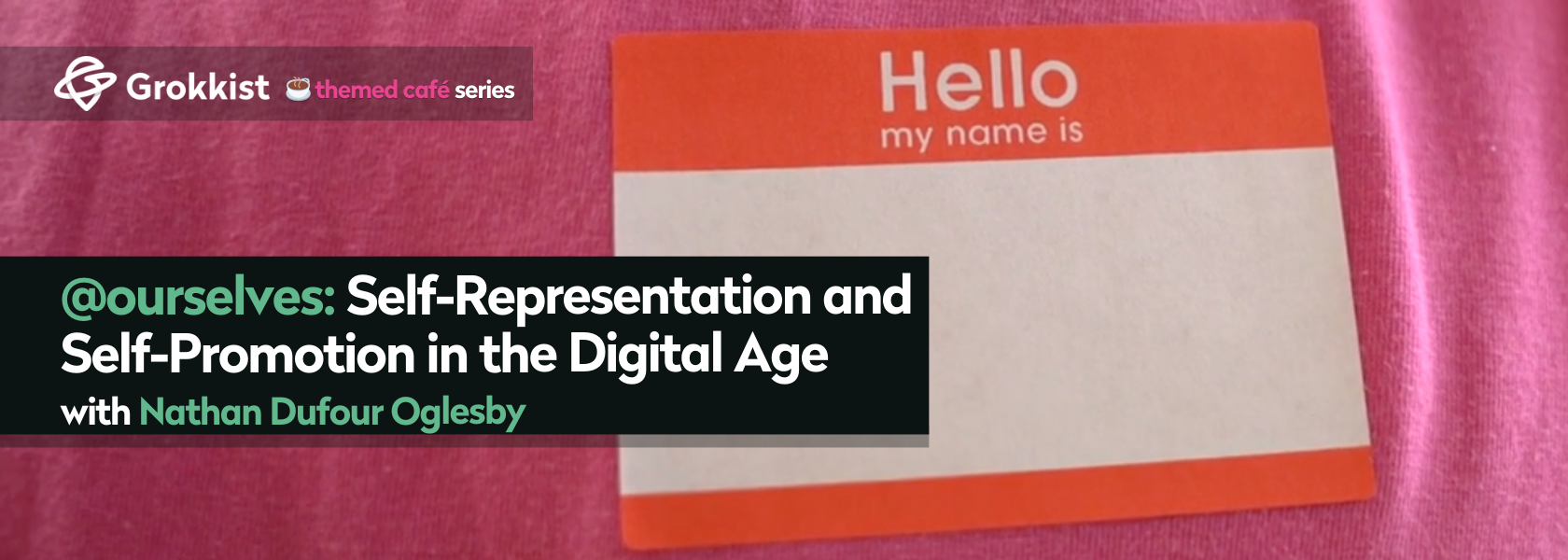
@ourselves: Self-Representation and Self-Promotion in the Digital Age - themed café
🗓️ Wed 4 Sep | 7–8.30pm EDT (UTC-4) (view in your timezone)
Hosted by Nathan Dufour Oglesby
🟢 Free and open to all
No matter what we aspire to in this world, we may find ourselves needing to “promote” ourselves — and this becomes more and more central to our collective experience, as our communication technologies continue to accelerate. This applies to digital creators in obvious ways; but more broadly it applies to everyone — the way we represent ourselves in digital spaces affects the opportunities to which we have access, and the way we live our lives.
To “promote” is literally to “move for the sake of” — what does it mean to “move for ones own sake”, in the context of our current culture of information proliferation?
This strikes to the heart of some of our central concerns as grokkists. How do you make yourself a brand, when the multifarious nature of your being doesn’t easily fit into one? How do you survive in a world that wants to grab you by your handle? And when do our regimens of self-representation and self-promotion begin to tear us away from the immediacy of what’s Real — our ecological, material and spiritual selves?
Can we still simply BE ourselves, while being @ourselves?
🍬 Snackables
Assorted awesome links to nurture your curiosity
#1 - The case for degrowth (or post-growth)

A careful guided tour through the degrowth debate and its recent literature. “Economic growth has pushed the planetary system to its limits, or past them", and as the saying goes, "there is no growth on a dead planet". The idea that we could ‘decouple’ growth from greenhouse gas emissions, the decline in biodiversity and the destruction of habitats, is at best a distraction and at worst "a form of denial" – to save the planet, we may need to shrink our economies intentionally, focusing on equity and sustainability over expansion.
The article also engages with "predictable" objections from 'green growthers' who want to work within the existing economic system: "Until the green-growthers can point to something, anything, that demonstrates their faith has helped realise a meaningful structural shift – not just towards compostable take-out packaging, or shopping malls with charging stations in the car park, but in the global economy as a whole – it is up to them to make the case, not their critics." It also covers some of the disagreements within the movement (e.g. whether or not degrowth is part of a broader eco-socialist movement and whether this is a re-run of growth vs development debates of the 20th century) and other unanswered questions "like how is this supposed to work?"
#2 - Is green growth possible?

A techno-optimist perspective on 'decoupling' prosperity from environmental impact. "If we can’t, then what we’re left with is a politics of sacrifice. Then we’re asking residents of rich countries to give up what they have. We’re asking residents of poor and middle income countries to give up what they want. There is no way around that ... And the politics of sacrifice, they’re abysmal." A NYT interview (podcast or transcript) with Hannah Ritchie, the lead researcher at Our World in Data, which argues for a "politics of transition":
"It’s only very, very recently that we now have the technologies and the opportunity to generate large amounts of energy, large and cheap energy without burning stuff. And I think people underestimate the scale of that opportunity ... If you look at the carbon footprint of the average person in the UK over time ... my carbon footprint today is less than my grandparents when they were my age. Despite the fact that if you looked at our lifestyles, I think you would think that mine is much more luxurious than theirs was. And this is really the result of just technological change and decarbonization."
Both perspectives recognise the severity of the climate crisis but diverge sharply on the solutions, each viewing the other’s approach as insufficient or even counterproductive. Degrowth advocates would critique techno-optimism for being delusional, dismissive of social justice, and blind to ecological limits. Techno-optimists would critique degrowth for being pessimistic, impractical, and potentially harmful to social and economic stability. For myself, I try to stay curious.
#3 - Lessons from the French film industry
A clear and well-researched video essay on the artistic, commercial, and public success of the French film and television industry and how it works "to support an independent cinema that is bold in terms of market standards and that cannot find its financial balance without public assistance". Includes detailed analysis of how projects are funded, where revenue comes from, and some of the challenges. The French system is an alternative media model that represents "the missing piece of the conversation we have about the state of the movies."
#4 - Serpentine symbolism: a history of the snake across time and cultures
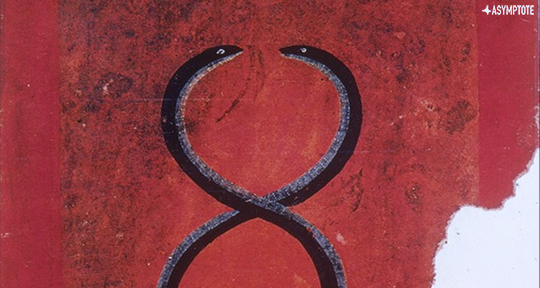
“The serpent uncoils, a whispering reminder that in the end, all must return to the earth.” A lyrical history of the symbolism and mythology of the snake throughout human history, from the the Garden of Eden, Egyptian and Norse symbology, Ouroboros, and the Oracle at Delphi, to Aldous Huxley, the shapeshifting snake-women of Bollywood films, Voldemort, and the serpentine qualities of the human spine. The writing spirals like the serpent itself, winding through themes of temptation and transformation, drawing the reader into a meditation on the cyclical dance between humanity and the natural world.
#5 - Intricate line drawings inspired by the natural world

Artist and illustrator Salma Price-Nell creates intricate and detailed illustrations of trees and natural landscapes, harnessing their aesthetic and metaphorical properties through ink drawings and delicate linework. "I find myself drawn to the interconnectedness of the universe, and my art reflects this fascination. I explore the patterns in the billions of years of evolution that have existed in order for us to be what we are. Reflected in nature is our true nature. By listening more than we speak, by watching more than we act, by paying attention, really paying attention to the present moment can we truly start to understand what life means."
A pair of parting thoughts...
“If I am worth anything later, I am worth something now. For wheat is wheat, even if people think it is a grass in the beginning.” — Vincent Van Gogh
"You cannot pull plants to make them grow faster.” — Francis Lucille
This newsletter was sent to 600+ curious and caring subscribers. Help us expand the grokkiverse by telling a friend. Here's a direct link to join the mailing list or you can share this edition directly with others too:
grokk.ist/newsletter/50/
- Hit reply and share what's on your mind
- Join the Grokkist Network and explore our self-paced welcome tutorial
- Come to an upcoming event or check out our courses and classes
- Explore ways to get involved in the grokkist community
- Consider becoming a Grokkist Member
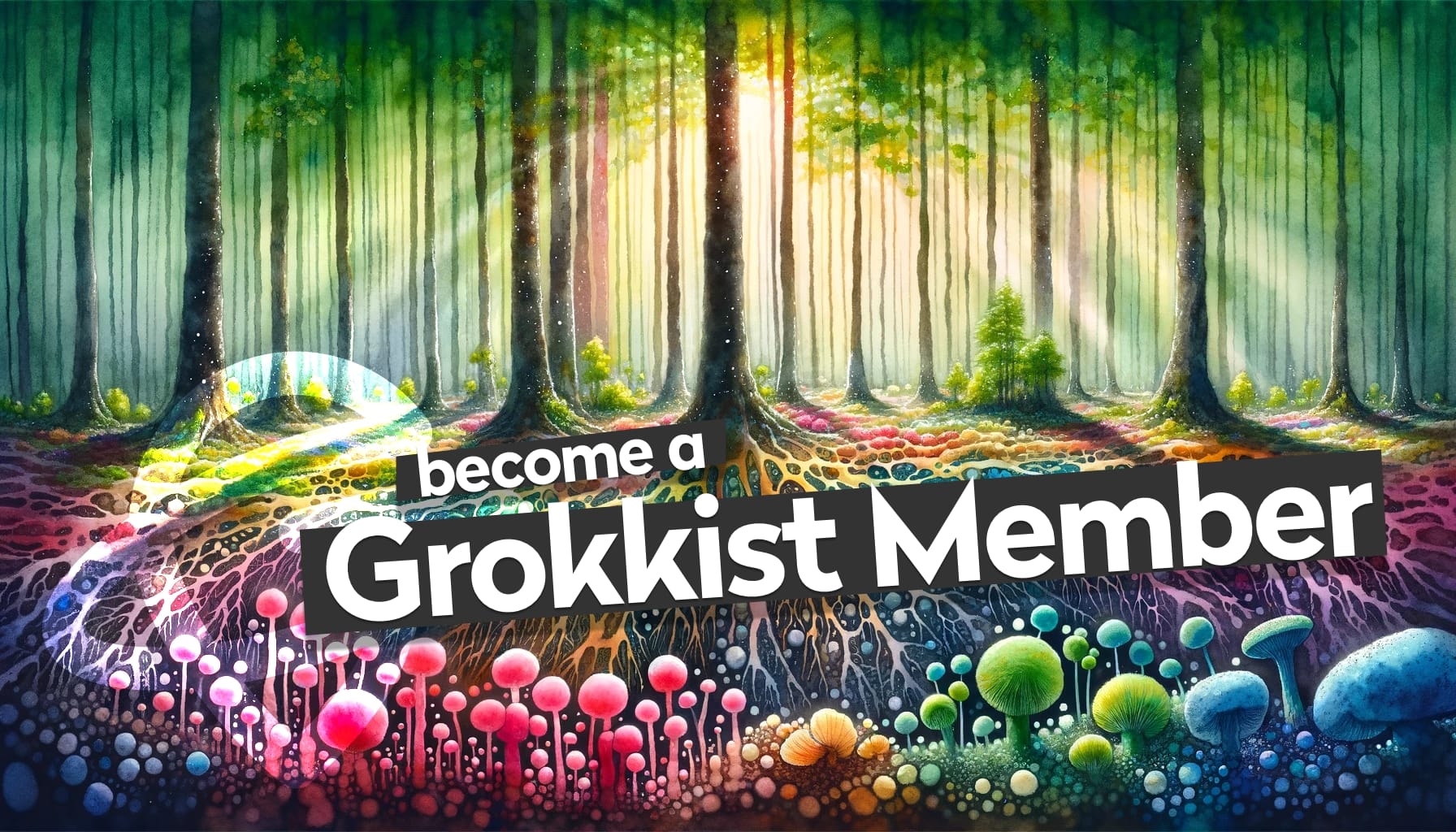
🔖 Become a Grokkist Full Member
As a paid Grokkist member, you'll directly contribute to our social purpose while also enjoying a range of additional benefits as part of a grokking community of practice.

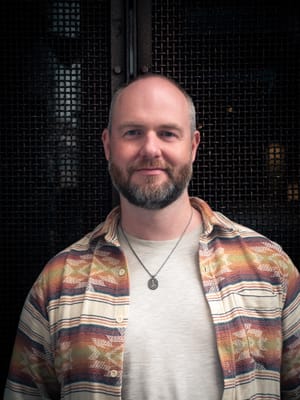
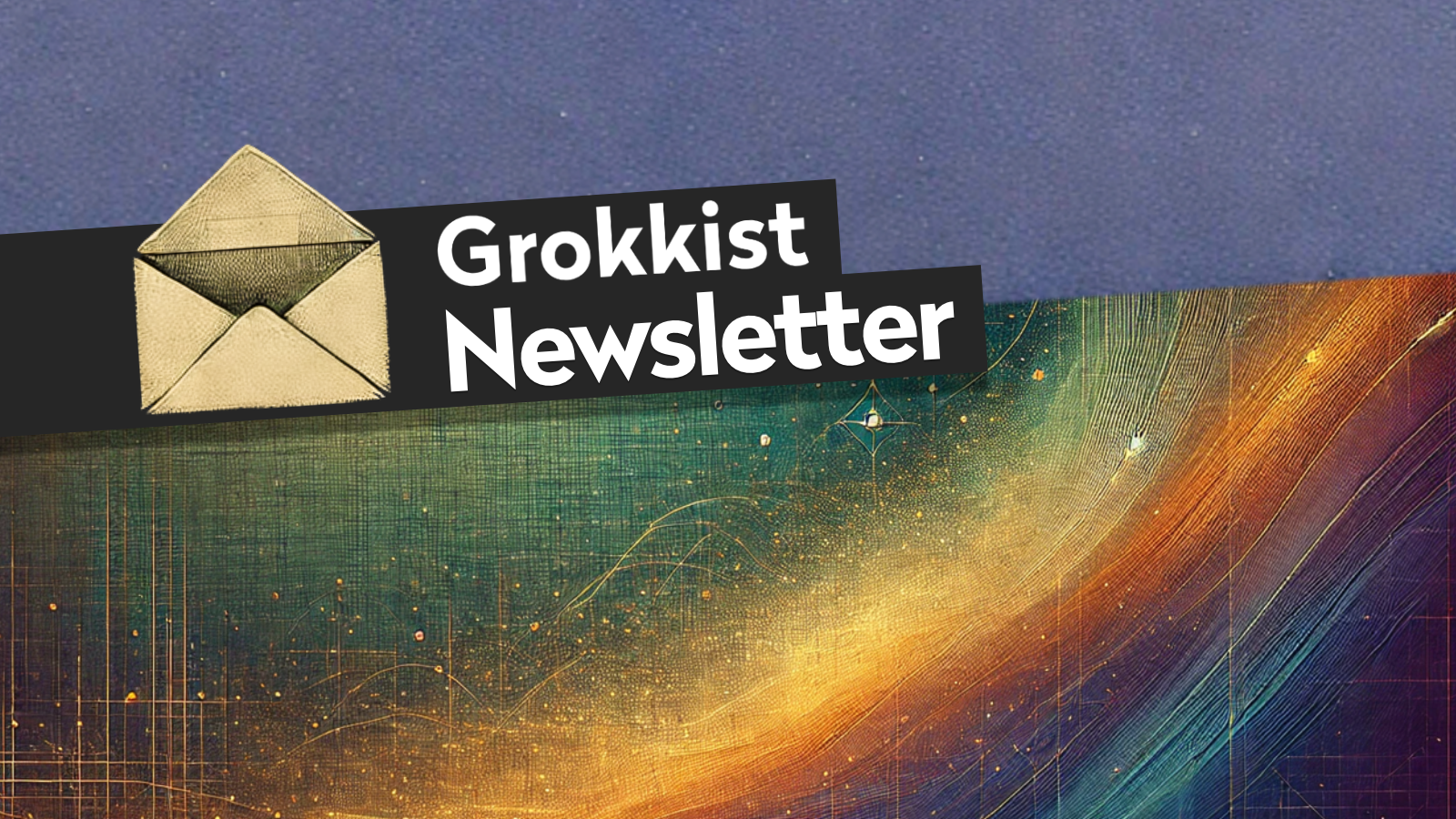







Member discussion